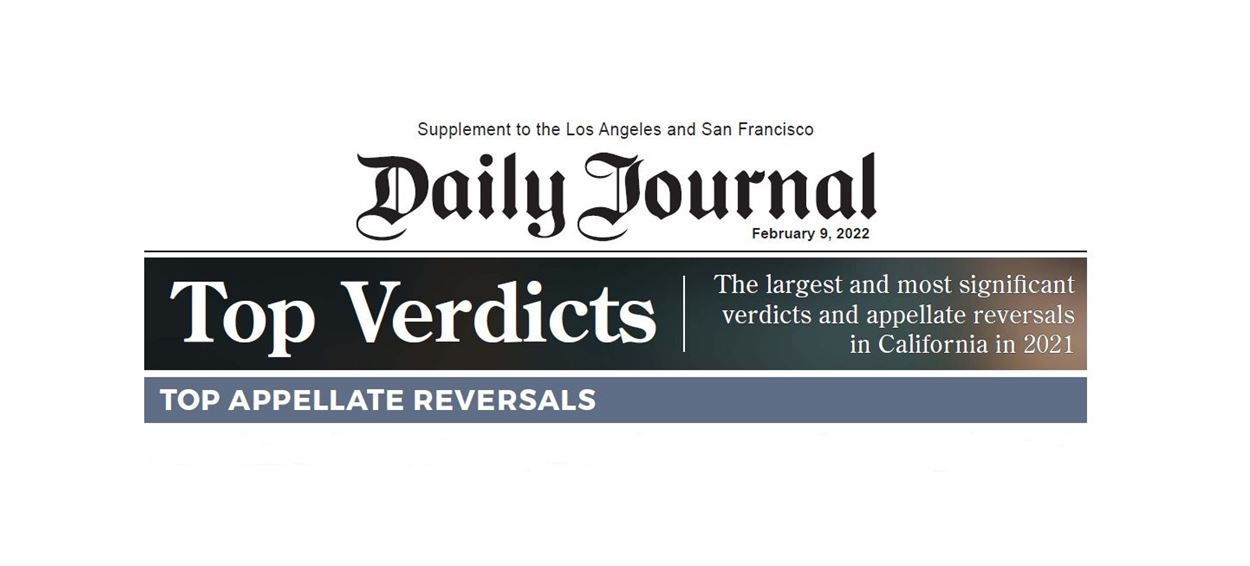By Federico Lo Giudice, Daily Journal – February 9, 2022 – The city and county of Los Angeles face a massive homelessness problem, but the question in a case argued last year before the 9th U.S. Circuit Court of Appeals was who should be in charge of solving it.
U.S. District Judge David O. Carter issued a preliminary injunction in April ordering the city and county to house skid row’s homeless population within six months and to deposit $1 billion into an escrow account to ensure the funds were being used appropriately.
But attorneys with Miller Barondess LLP, representing the county, working with attorneys from the city, persuaded a 9th Circuit panel to vacate Carter’s order because it was “largely based on unpled claims and theories.”
“To fill the gap, the district court impermissibly resorted to independent research and extra-record evidence,” wrote 9th Circuit Judge Jacqueline H. Nguyen, an appointee of President Barack Obama. “For these reasons, we vacate the preliminary injunction and remand for further proceedings.”
This reversal validated the arguments of city and county officials who had warned Carter for months that he was wading into territory best left to elected officials to address. LA Alliance for Human Rights v. County of Los Angeles et al., 21-55395 (9th Circ., filed April 22, 2021).
“Homelessness is a crisis, but it’s meant to be addressed by the leaders, by the board of supervisors, by the subject matter experts,” said Miller Barondess partner J. Mira Hashmall. “It is not something that can be solved in court.”
Hashmall said that “the strategy on the 9th Circuit was to focus the court on the very high bar for seeking such injunctive relief, and in particular, the absence from the county’s perspective of any evidence that the county had violated the law.”
One of the key issues before the 9th Circuit panel, which was comprised of appointees of Democratic presidents, was whether plaintiffs had standing to sue.
“The plaintiff must show that they suffered an injury that can be directly traced to the defendant and so our arguments on the 9th Circuit were focused on that threshold issue, and the fact that the plaintiffs could not demonstrate that they had been harmed by anything that the county had done,” she said. “The 9th Circuit agreed.”
Nguyen also chided Carter for relying on his own independent research and citing material not subject to judicial notice.
“The parties take no issue with the district court’s conclusion that structural racism has played a significant role in the current homelessness crisis in the Los Angeles area,” Nguyen wrote. “But none of Plaintiffs’ claims is based on racial discrimination, and the district court’s order is largely based on unpled claims and theories.”
Hashmall argued the appeal along with Los Angeles Deputy City Attorney Michael M. Walsh and Shayla R. Myers of the Legal Aid Foundation of Los Angeles, which sided with the city and county as an intervenor.
Since the preliminary injunction was vacated in September, Matthew D. Umhofer, a partner with Spertus Landes & Umhofer LLP, who represents the LA Alliance for Human Rights and other plaintiffs, filed an amended complaint.
The city and county moved to dismiss in December, which Carter considered last month.
Hashmall called Carter’s commitment to address homelessness “commendable,” but added that the record did not support his injunction. “There was no evidence that the plaintiffs were hurt by the county, nor a constitutional violation, and that is why I believe the 9th Circuit agreed,” she added.
Carter ordered the parties to a mediation settlement session before U.S. District Judge Andre Birotte of Los Angeles on Feb. 15 to discuss a possible resolution of the lawsuit.
“We are pleased at the possibility of a global resolution and we hope the city and county come to the table with real, long-term solutions,” Umhofer said in an interview.

